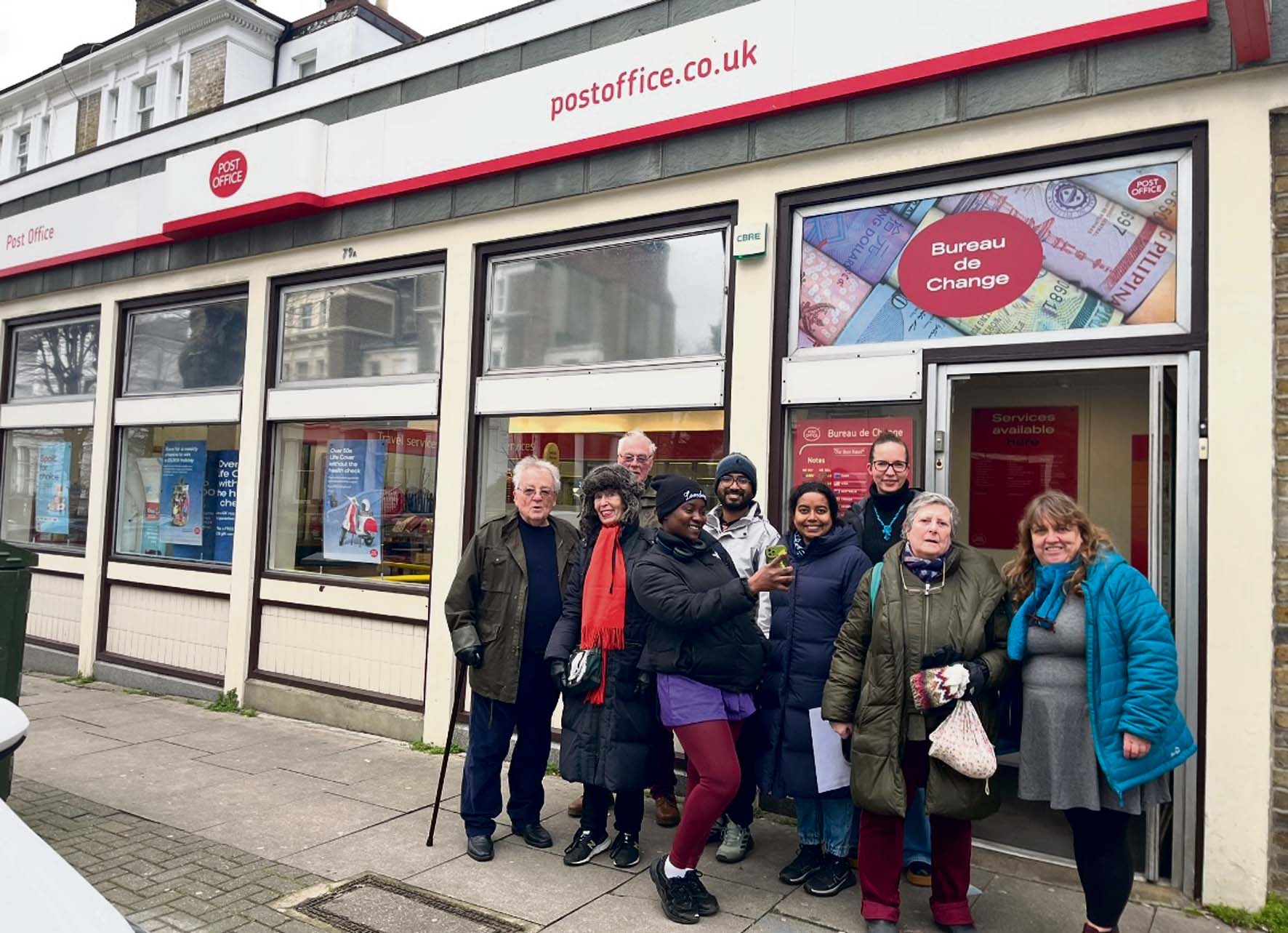Today’s high streets bust the myth that markets know best
COMMENT: Camden high streets are a picture of homogenisation and the final furlongs of a great race to the bottom is clear for all to see
Thursday, 13th February 2025

More than 600 people have signed a petition calling for Kilburn High Road post office to be saved
ANOTHER week, another post office threatened with closure.
First Hampstead, then Swiss Cottage and now Kilburn.
Any post office closure has a huge impact on the lives of people who have not, willingly or otherwise, embraced the digital age.
In particular, elderly people who pick up their pensions will find themselves further isolated from a society that doesn’t care for them.
Thanks to our country’s obsession with outsourcing, decisions like these are being made by a company, the Post Office Ltd, not elected politicians of a government.
Petitions, even ones signed by 600 people, will most likely be tossed in the bin by a highly-paid executive rather than given any real consideration.
Everyone understands that, since the internet seized control of our lives, things have changed for the better and worse.
Post Office income has been decimated by, first, the use of email over letters, and second, the use of Amazon-style package delivery services.
Retail giants have crumbled because so many customers know that anything is available at the touch of a button.
While it is hard to stand by and watch the closures of high street institutions, it is equally easy to comprehend it.
What is not so easy to rationalise is what is replacing them. You think that in a progressive society, when something becomes outmoded or archaic through the passage of time, it would be replaced by something new and exciting.
Surely, some feature of modernity would appear that was not only needed but, at the least, useful to the neighbourhood.
But all we get is dubious gambling dens, purveyors of addictive vapes and fast food.
Instead of a rich mix of businesses catering to diverse community needs, we’ve been left with a wasteland of rent-maximising, profit-chasing uniformity.
Camden high streets are a picture of homogenisation and the final furlongs of a great race to the bottom is clear for all to see.
The free market, that supposed engine of consumer choice, has failed our high streets spectacularly.
This is not some romanticised nostalgia for a bygone era. It’s a structural failure driven by sky-high rents, short-term landlordism, and a planning system that favours profit over place.
Councils need stronger powers to shape their high streets, including rent controls, business rate relief for independents, and stricter planning rules that stop the relentless march of identikit chains.
We need measures that actively encourage diversity – what about quotas ensuring a minimum percentage of independent businesses in prime high street locations?
It’s time to reject the myth that the market always knows best. Because for anyone walking down a high street in Camden right now, it’s clear: it doesn’t.